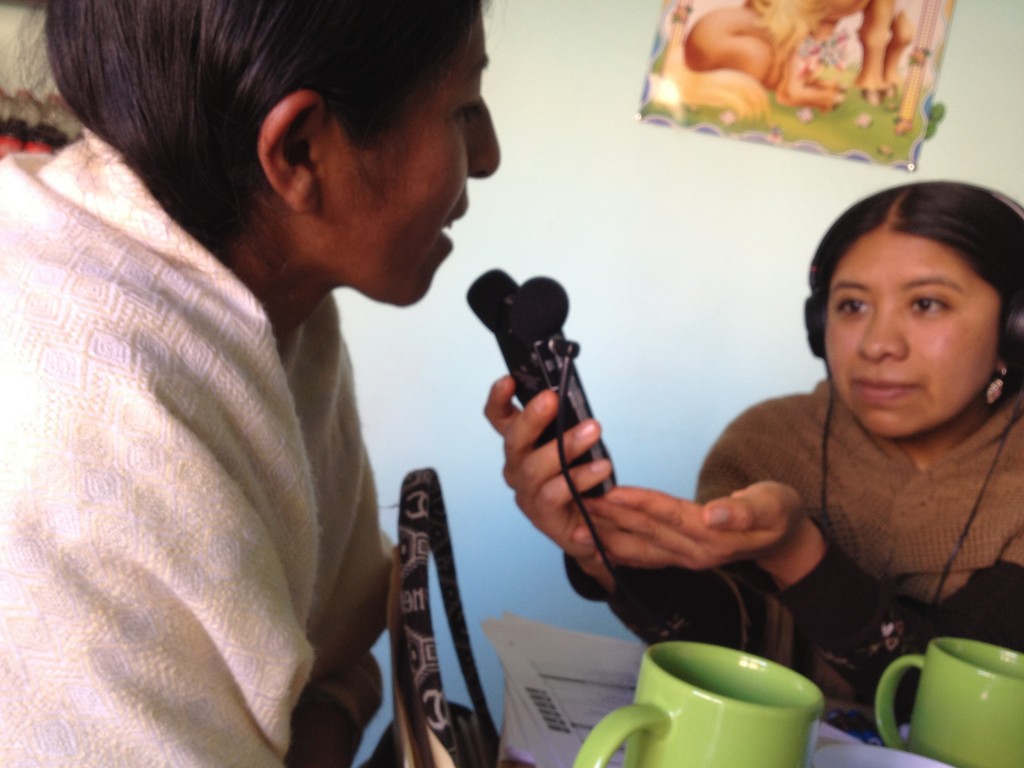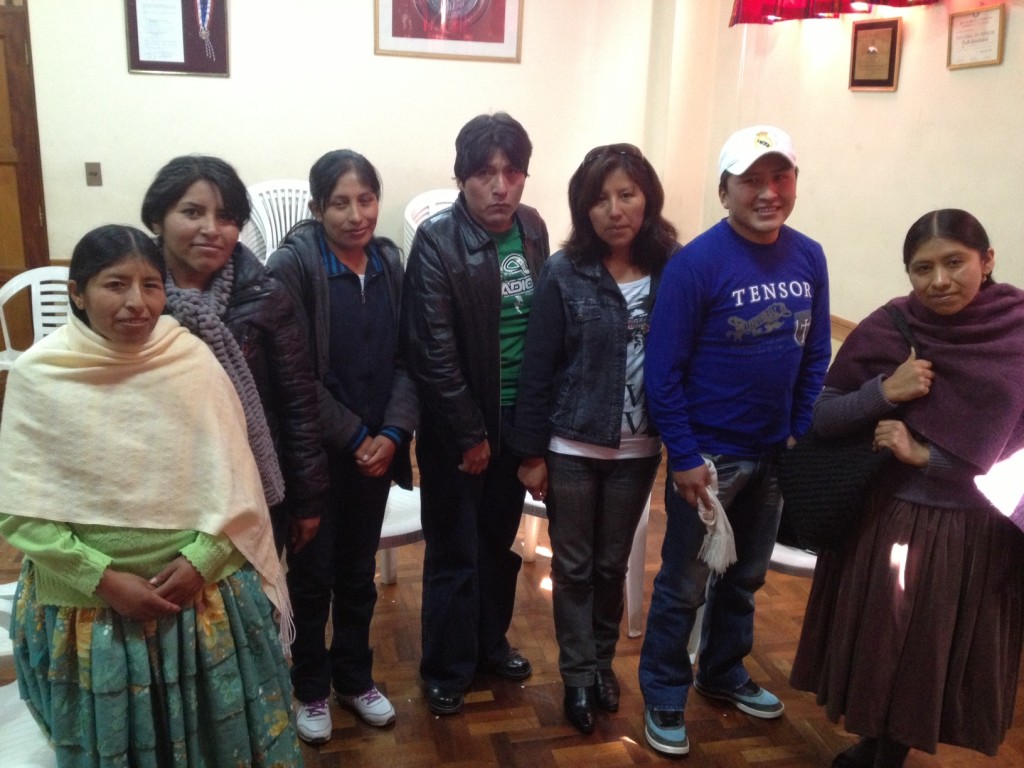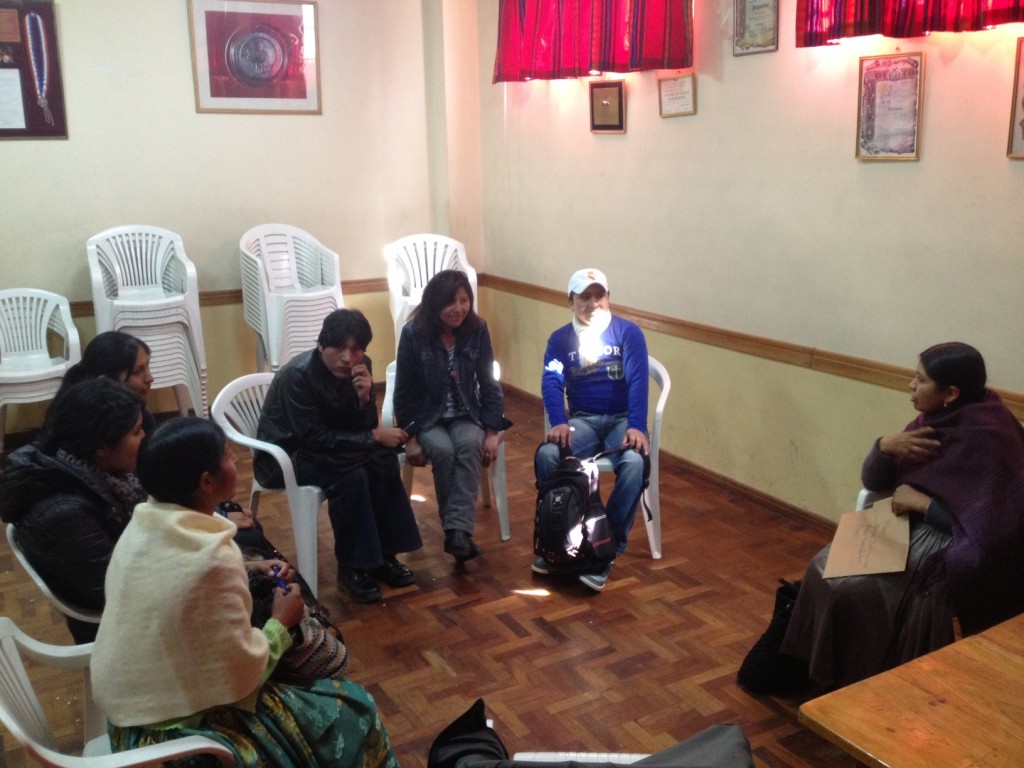The first phase of the Lingua Airwaves Project with Global Voices Aymara is almost complete. A team of five volunteers with the help of the radio journalist Norma Barrancos recorded eleven podcasts that consisted of summaries of translations of Global Voices posts. The idea of creating summaries came from the fact that the content is targeted at a local audience in El Alto, Bolivia that may not be as familiar with all of the elements that make up a normal Global Voices stories. Together with the help of Norma, the team created scripts that explained the topic and added different audio elements, such as different voices to narrate some of the citizen media quotes and other music to accompany the piece.
We’re currently in the process of editing the eleven clips with adding a short introduction by Victoria. The clip below is one of the finished audio clips that pulls together this introduction followed by the story content. For those of you that may not understand Aymara, if you listen at 0:43 at the clip below, you can hear a mention of “Global Voices” and Victoria explains to the audience that the story is comprised of citizen media content from around the world and translated by a volunteer team of translators.
(We will be adding more information such as a link to the corresponding translation and information about the narrators)
One of the major hurdles during this first phase was the unfamiliarity with the new recording equipment. Norma is an experienced journalist much more comfortable with her audio equipment that she has been using for years, and using a new piece of equipment was, in her own words, “intimidating.” So for the first round of recordings, she did not use the new Olympus recorders and we all acknowledge that the sound quality is not what it could be. The task of putting together the scripts and working with the translators was deemed to be the priority during the first part of the project
However, during the second week of October, we had an intensive training together with Victoria and Norma in the use of the new equipment. We are happy to report that Norma and Victoria feel much more confident in the use of the higher quality digital audio recorder and will use it for the next round of recordings.
Next up: distribution strategies and the airing of the clips on the radio.



